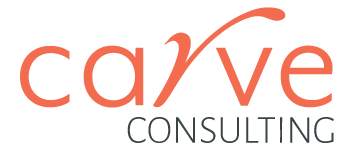At some point, there is a great shift in a person’s leadership capability, as they stop focusing on proving they are enough and become comfortable embracing the knowledge around them and in turn, empowering others. How can you take steps to move from being self-focused to an influencer and steward of collective knowledge?
There’s a subtle but very important shift that occurs in someone’s leadership capability: when they realise they are enough, and therefore have the confidence to tap into knowledge around them.
It might sound simple, but it’s far from easy.
As we know, a typical career naturally starts with a steep learning curve, and this is more often than not coupled with a desire to seek external validation. There’s an inevitable degree of imposter syndrome and a resulting need to ensure others perceive us as capable of fulfilling the role we’re hired to do.
For the best leaders, this self-centric mentality eventually starts to change. Leaders recognise what they know, accept that they know enough – but not everything – and become more secure in their own capabilities. With this comes recognition that the knowledge and expertise around them is greater than their own. This confidence in what they do know, and recognising what they don’t know, allows them to leverage the expertise of others, distribute responsibility and seek input, ultimately becoming an influencer.
By influencer, we mean someone who’s truly listened, learnt to value others’ input, allowed others to feel significant and therefore opened the infinite world of information and ideas.
The importance of collective knowledge
For people who work in and are happy within a task-based role, there might be nothing wrong with being focused on what they know. Your knowledge of what and how tasks need to be done, is what you’re paid to do.
Where it does become an important area of development is for those in leadership roles. I’ve seen plenty of clients in this stage – they’ve reached manager level, spending years telling everyone what they know, then something happens that makes them realise they’ve forgotten to let others in.
Without this development, there’s a risk of damage to a person’s reputation, relationships and ultimately business outcomes.
Why the risk? Well, when someone positions themselves at the centre, then the outcome is dependent upon them getting it right. Resources are finite, and without bringing others on the journey, it’s harder to have an objective and measured response or regularly make good decisions. As this article points out, many studies have found a clear link between diversity of thought and better decision-making and problem-solving. Drawing on collective knowledge means infinite resources and allows for more objective and measured responses.
On an interpersonal level, not letting others in can lead to negative management behaviour such as leading with authority or shutting others out rather than influence.
Becoming an influencer
Of course, we’re not born with this level of objectiveness and awareness. In fact, this leadership progression is in line with adult development theory, which proposes people interacting with the world move through various stages. These include:
- socialised – you’re the centre of your own universe and looking for external validation. Most people in fact live in this stage.
- self-authoring – you’re the centre of your own universe but using your own values and morals for validation.
- self-transformative – you see yourself as part of a whole system, guiding and influencing the co-dependant elements.
If you are identifying this as a development area then you’re in good company.
Growth starts with self-awareness – a firm grasp of what you DO know and where there are gaps. Working out how comfortable you are with the idea that you’re not the holder of all knowledge, nor should you be.
Often, people start self-reflection because of an event that shocks them into realisation, such as not getting a promotion, tension with colleagues or being excluded from key conversations.
However, to start thinking about this journey now, try the following steps:
- Look around you. Observe those who seem to get ahead, who are always making things happen. What are they doing different?
- Ask for feedback. You can draw on a wide range of people for this, from colleagues to associates and friends. However, what’s important is you pick people who are capable of articulating this feedback in a way that gives you depth of insight. Some people aren’t comfortable giving proper feedback, or don’t have the words to explain it in a useful way. It’s also essential to seek feedback from people you respect and whose values align with your own.
- Tap available resources for help. If you work for an organisation, then there’s likely to be development programs you can take advantage of – from mentoring and peer-to-peer coaching to external coaching and 360 assessments. If you don’t, consider investing in private courses, coaching, or there are a number of good leadership development books.
It’s empowering to realise you don’t have to know everything, and even more empowering to be able to ask.

